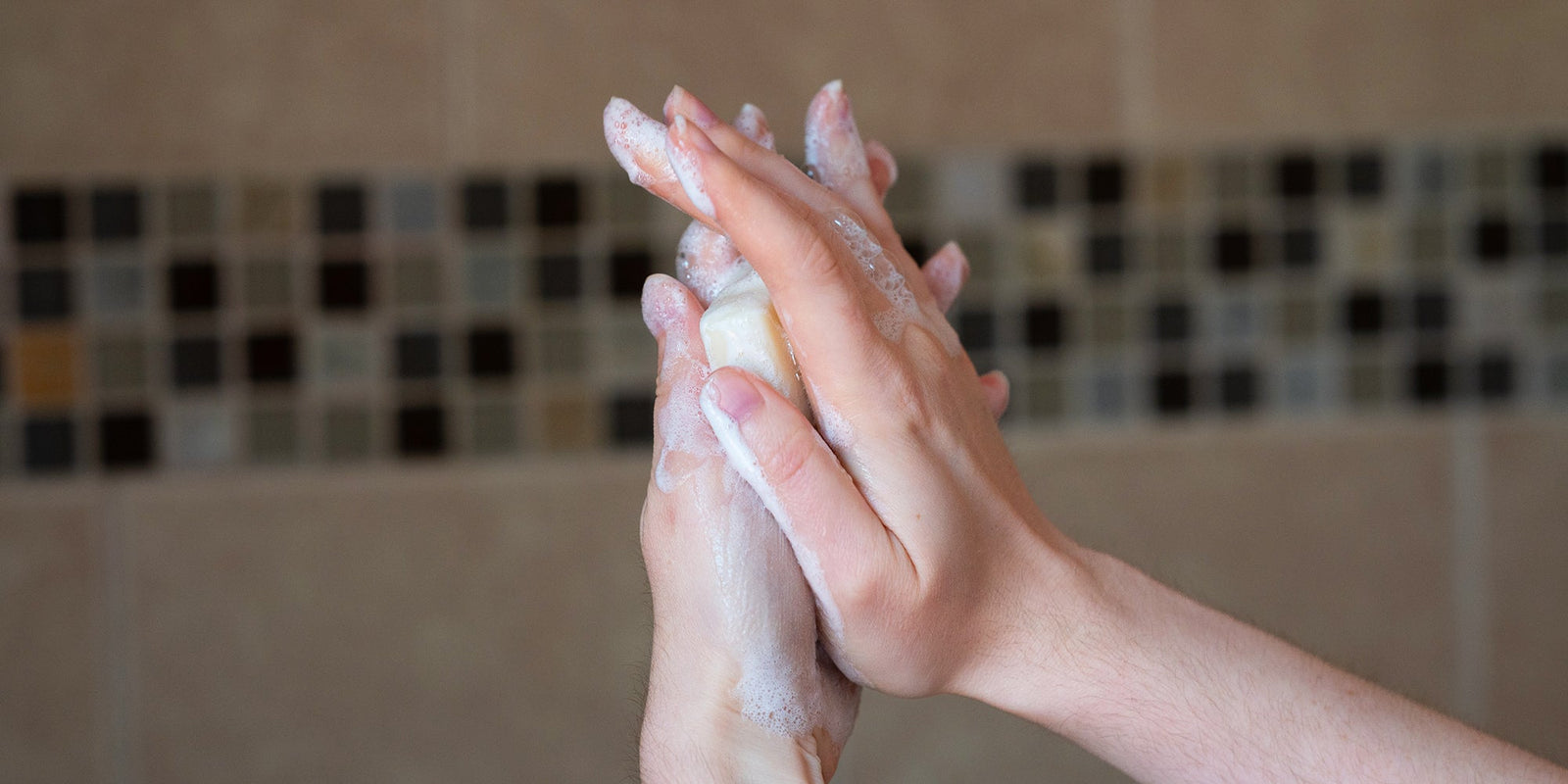People have been using soap for nearly 5,000 years, making it one of the oldest products still used in homes today. Everyone knows that soap works. But have you ever wondered how it works?
At Meliora Cleaning Products, we’re always asking questions about the hows and whys of the products we use in our homes. We believe it’s important to understand what we’re using—and asking you to use—at a fundamental level to ensure that it’s the best we can offer.
So, let’s explore how soap has stood the test of time and become an essential part of daily life.
How does soap work?
The cleaning power of soap comes from its chemical structure which allows it to bond with both water and dirt. While there are many types of soaps made from different ingredients, they all share some essential properties.
Soaps are fatty acid salts
Soap is made by mixing a fat or oil, such as organic coconut oil, with a base, such as sodium hydroxide, also commonly called lye. These ingredients react in a process called saponification, resulting in the fatty acid salts we call soap.
Different ingredient mixtures result in different chemical formulas for soap. For example, we use four different types of vegetable soap in our products:
- Organic Coconut Oil (Cocos Nucifera) + Sodium Hydroxide = Sodium Cocoate
- Organic Coconut Oil (Cocos Nucifera) + Potassium Hydroxide = Potassium Cocoate
- Organic Sunflower Oil (Helianthus Annuus) + Sodium Hydroxide = Sodium Sunflowerate
- Organic Sunflower Oil (Helianthus Annuus) + Potassium Hydroxide = Potassium Sunflowerate
While each of these soaps may have a slightly different configuration of atoms, they all have molecules composed of carboxylate salt heads and hydrocarbon fatty acid tails.
This combination of salt and fatty acids is significant because it allows soap to interact with both water and soils like fats, oils, and grease. Oil and water normally don’t mix, but soap brings them together. Soap molecules are amphiphilic, meaning they both attract and repel water.

A water molecule composed of a polar, hydrophilic, carboxylate head and a non-polar, hydrophobic, hydrocarbon tail.
Soap molecules have a hydrophilic head and a hydrophobic tail
The head of the soap molecule is polar, just like water molecules. This makes it hydrophilic, or water-attracting, meaning that the head of a soap molecule will bond readily with water.
The tail is non-polar, like the molecules of oils and fats. It is hydrophobic, or water-repelling, and will not bond with water. The tail of a water molecule is lipophilic, meaning it bonds with lipids such as fats and oils.

The hydrophilic heads of water molecules bond to water and the hydrophobic tails bond to dirt, oil, and germs.
In practice, this allows soap to dissolve in water, which helps apply it to a wide range of surfaces like skin, clothes, cookware, and hard surfaces in your home:
- Bars of soap lather to coat your skin or dirty dishes and easily wash away.
- Tablets mix with water to form liquid solutions for all-purpose cleaning.
- Powdered soap dissolves in water to easily penetrate fabrics in the washing machine.
Soap cleans by trapping soils in water
The chemistry of soap makes it effective at removing dirt, grease, oils, stains, and germs. Soap molecules suspended in water attach to dirt and oils with their hydrophobic tails. When many soap molecules bond to soils, they surround them in bubble-like structures called micelles, with the tails facing toward the dirt and the heads facing outward. This lifts and locks away impurities from the surface. The water-loving outer layer of the micelles keeps them bonded to the soapy water, allowing them to be easily washed or wiped away at the end of cleaning.

Water molecules trap dirt in bubble-like structures called micelles, which are washed or wiped away during cleaning.
Many bacteria and viruses have outer layers made of lipids that hold them together. When these microbes come into contact with soap, the lipophilic tails of soap molecules tear apart the lipid membranes as they attempt to bond with them and evade the surrounding water. The remaining microbe fragments are then trapped in micelles, ready to be washed away.
Does soap kill germs, bacteria, and viruses?
Soap diluted in water destroys many microbes, including coronaviruses, HIV, herpes, Ebola, Zika, dengue, viruses that cause hepatitis B and C, and bacteria that attack the intestines and respiratory tract.
Soap also removes harmful microbes that it cannot destroy by disrupting the chemical bonds that make bacteria and viruses cling to surfaces and skin. Like dirt, oils, and stains, these microbes are trapped by soap molecules and easily removed.
That’s what makes soap an effective cleaner rather than a disinfectant. According to the CDC, cleaning alone “removes most germs, dirt, and impurities from surfaces” and “helps you and your family stay healthy.” If you need to disinfect, you should clean first to remove impurities.
Read our blog on Cleaning vs Disinfecting for more information.
What about antibacterial soap?
Antibacterials, also known as antimicrobials or antiseptics, are products that contain additional antimicrobial active ingredients such as triclosan. The Food and Drug Administration (FDA) has found no evidence that antibacterial soaps are better at preventing illness than regular soap and water.
Moreover, studies suggested that antimicrobial ingredients pose health risks such as bacterial resistance and hormonal effects. As a result, the FDA banned antimicrobial ingredients from over-the-counter soaps in 2016.

